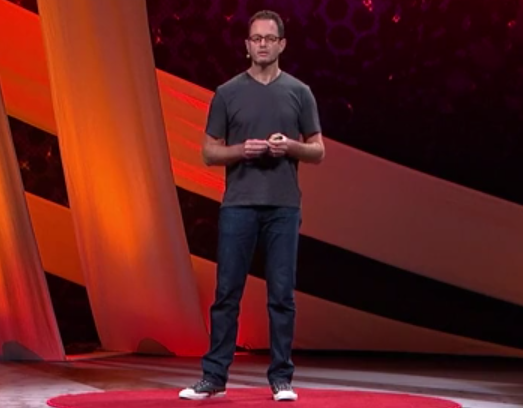But personal DNA machines can also save human lives.
但個人DNA檢測器還可以挽救人類的生命。
Professor Ian Goodfellow is a virologist at the University of Cambridge.
Ian Goodfellow教授是劍橋大學的病毒學家。
Last year he traveled to Sierra Leone.
去年他去了塞拉利昂。
When the Ebola outbreak broke out in Western Africa,
當埃博拉疫情在非洲西部爆發,
he quickly realized that doctors there lacked the basic tools to detect and combat disease.
他即刻意識到那里的醫生缺乏基礎的工具,去檢測疾病并與之搏斗。
Results could take up to a week to come back -- that's way too long for the patients and the families who are suffering.
結果最遲需要一周才能出來--這對于遭受痛苦的病人和家屬來說太久了。
Ian decided to move his lab into Makeni, Sierra Leone.
Ian決定將他的實驗室搬去馬可尼,塞拉利昂。
Here we see Ian Goodfellow moving over 10 tons of equipment into a pop-up tent
在這里,我們可以看到Ian Goodfellow正在把一個超過10噸的設備搬入一個彈出式帳篷,
that he would equip to detect and diagnose the virus and sequence it within 24 hours.
這是他準備來檢測和診斷病毒,在24小時內確定病毒的基因序列的地方。
But here's a surprise: the same equipment that Ian could use at his lab in the UK to sequence and diagnose Ebola,
但令人意想不到的是:Ian在英國實驗室用來確定和診斷埃博拉病毒基因序列的相同設備,
just wouldn't work under these conditions. We're talking 35 Celsius heat and over 90 percent humidity here.
在當前的條件下是根本無法使用的。我指的是當地35攝氏度的高溫和超過90%的濕度。

But instead, Ian could use personal DNA machines small enough
但現在,伊恩可以使用個人DNA檢測器,它們小到可以
to be placed in front of the air-conditioning unit to keep sequencing the virus and keep saving lives.
被放置在空調裝置的前面,來進行病毒測序和拯救生命。
This may seem like an extreme place for DNA analysis, but let's move on to an even more extreme environment: outer space.
這可能看起來像在一個極端的地方進行DNA分析,但是讓我們看看一個更極端的環境:外太空。
Let's talk about DNA analysis in space.
讓我們來談談在太空中進行DNA分析。
When astronauts live aboard the International Space Station, they're orbiting the planet 250 miles high.
當宇航員生活在國際空間站中,是繞著距地球400公里高的軌道移動。
They're traveling at 17,000 miles per hour. Picture that -- you're seeing 15 sunsets and sunrises every day.
他們以每小時2萬7千多公里的時速繞行。想象一下吧--每天會看到15次日落和日出。
You're also living in microgravity, floating. And under these conditions, our bodies can do funky things.
人也在微重力中漂浮著。在這些條件下,我們的身體機能會失常。
One of these things is that our immune systems get suppressed, making astronauts more prone to infection.
其一便是我們的免疫系統會被抑制,讓宇航員更容易感染疾病。











